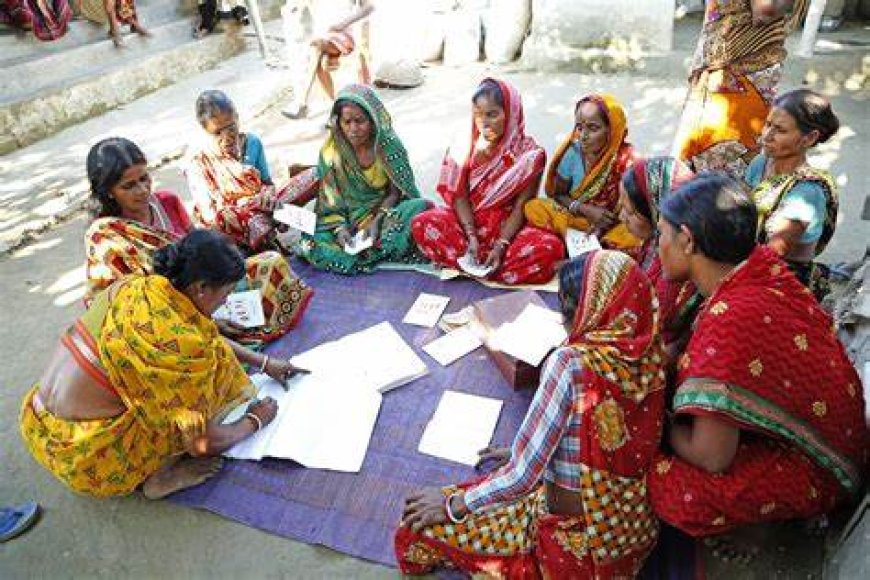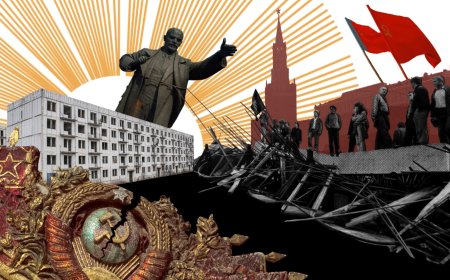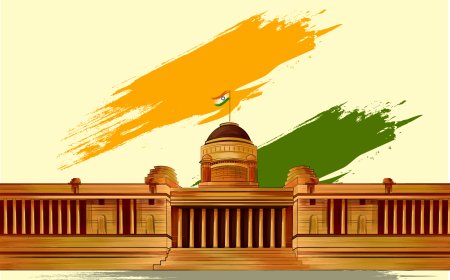Empowering Local Communities: How Decentralized Decision-Making Can Make India’s Cities Smarter and Safer
Discover how empowering local communities through decentralized decision-making can lead to smarter, safer, and more efficient cities in India. Explore the benefits of localism, community-driven solutions, and personalized governance for urban development.

India’s cities are growing at an unprecedented rate, with over 40% of the population living in urban areas and more moving to cities every day. This rapid urbanization brings its own set of challenges, including overcrowding, traffic congestion, pollution, and crime. As cities continue to expand, the question arises: Are our cities becoming smarter and safer? Or are they getting harder to navigate, less secure, and more difficult to manage?
What if the solution isn’t bigger government but smaller, more localized decisions? Imagine a future where local communities have more control over how their neighborhoods are designed, managed, and policed. What if your neighborhood had the power to decide how streets are laid out, how businesses operate, and how police patrols are managed? This approach, rooted in Libertarian values of decentralization and personal freedom, could be the key to building smarter, safer cities that truly serve their citizens.
In this article, we’ll explore how local decision-making can transform India’s urban landscape, and why it’s time to give power back to the people who know their neighborhoods best.
1. What is Localism and Why Does It Matter for India’s Cities?

Localism is the belief that decisions about governance, development, and safety should be made by those who are closest to the issue. Instead of large, distant government bodies dictating the needs of individual neighborhoods, local communities would have the freedom and autonomy to make decisions tailored to their specific needs. By decentralizing authority and empowering local leaders and citizens, we can foster greater innovation, efficiency, and personal responsibility.
In India, where urban populations are growing rapidly, localism could offer several solutions to problems like:
- Overcrowding and Poor Infrastructure
- Crime and Security Concerns
- Inefficient Bureaucracy
- Lack of Tailored Services
Rather than relying on centralized government policies, localism encourages a bottom-up approach that can more effectively address the unique challenges of each community.
2. How Empowering Local Communities Can Improve Public Safety
Safety is a top priority for any urban area. Currently, in many Indian cities, law enforcement is managed by centralized agencies that are sometimes distant from the needs of specific neighborhoods. The one-size-fits-all approach often leads to inefficiencies, such as inadequate policing in certain areas or a lack of attention to local issues like petty crime, traffic violations, or street harassment.
When communities are empowered to make their own decisions about safety, policing can become more personalized and targeted. Here’s how local decision-making can improve public safety:
-
Community-Led Policing: Local neighborhoods can choose to implement neighborhood watch programs, work closely with local law enforcement, and even take responsibility for their own security. Residents are more likely to identify potential threats and work together to prevent crime.
-
Localized Law Enforcement: Local governments could hire officers from within the community, ensuring that they have a better understanding of the area and its unique challenges. This familiarity leads to more effective policing and increased trust between citizens and law enforcement.
-
Addressing Local Crime Patterns: Local communities can direct resources to areas with specific crime issues, such as areas where drug trafficking or theft is more prevalent, rather than having blanket solutions imposed from the top down.
The idea is simple: people who live in an area know best how to secure it. By decentralizing safety efforts, communities can create more secure environments tailored to their needs, ensuring that policing is more responsive, effective, and efficient.
3. Smarter Cities Through Local Innovation

India's cities face significant infrastructure challenges—poor traffic management, overburdened public transport, and insufficient waste management are just a few examples. But these issues can’t be solved through generic solutions imposed by distant bureaucrats or centralized authorities.
Instead, local communities, equipped with the autonomy to act, can find more innovative, creative solutions:
-
Traffic and Transportation: Local governments can introduce measures that are unique to their city’s specific traffic patterns, like dedicated bike lanes, smart traffic signals, or local transport systems that meet their needs more efficiently.
-
Waste Management: In some cities, local communities have successfully implemented neighborhood recycling programs or waste-to-energy solutions, significantly improving waste management without waiting for state or central intervention.
-
Sustainable Urban Development: By letting local communities decide on urban planning, neighborhoods can focus on developing green spaces, eco-friendly buildings, and local resources that reflect their environmental needs and cultural values.
The key to creating smarter cities lies in local innovation. When communities are empowered to take charge, they can implement creative solutions that are more sustainable and effective in the long term.
4. Localized Solutions for Better Urban Development
Urban development is crucial for improving living conditions, but often, large-scale, state-driven projects fail to account for the unique needs of specific areas. In India, this can result in poorly planned neighborhoods, inadequate housing, and infrastructure that doesn’t serve the local population effectively.
Empowering local decision-making can:
-
Enable tailored urban planning: Local governments can decide where to build new homes, roads, and public facilities based on actual needs rather than generalized policies.
-
Promote affordable housing: Communities can have more say in land use policies, allowing them to address housing shortages, reduce property costs, and ensure that development is inclusive.
-
Enhance public spaces: By involving residents in decision-making, cities can create public spaces that reflect local culture and promote social cohesion.
These localized decisions could lead to more efficient, affordable, and personalized urban development, ensuring that India’s cities evolve in a way that meets the needs of the people who live there.
5. A Vision for the Future: A More Empowered and Engaged India
The future of India’s cities doesn’t have to be shaped solely by central government policies. Instead, through decentralization and local empowerment, we can create communities that are smarter, safer, and more resilient.
The path to better urban governance lies in trusting local leaders, empowering communities, and allowing citizens to take ownership of the issues that matter most to them. With more control over their environments, citizens can create innovative solutions, build stronger neighborhoods, and shape their futures in ways that centralized systems often cannot.
The Libertarian approach to local decision-making is not about abandoning government, but about making it more responsive, efficient, and people-centered. By embracing localism, we can create a society where individuals and communities work together for the common good, leading to cities that are not only smarter and safer but also more inclusive and sustainable.
Conclusion: Empowering Communities for a Better India
The future of India’s cities doesn’t have to be shaped by bureaucratic red tape and top-down policies. By embracing the principles of localism and decentralized decision-making, we can unlock a future where communities are empowered, neighborhoods are safer, and urban areas thrive.
Let’s work together for a smarter, safer, and more innovative India, where each citizen has the freedom to create the community they deserve.
What's Your Reaction?



















































